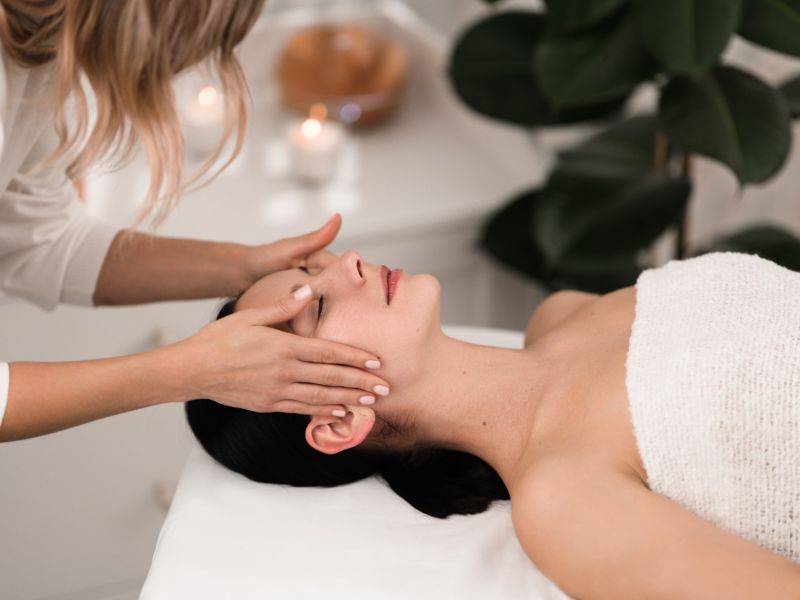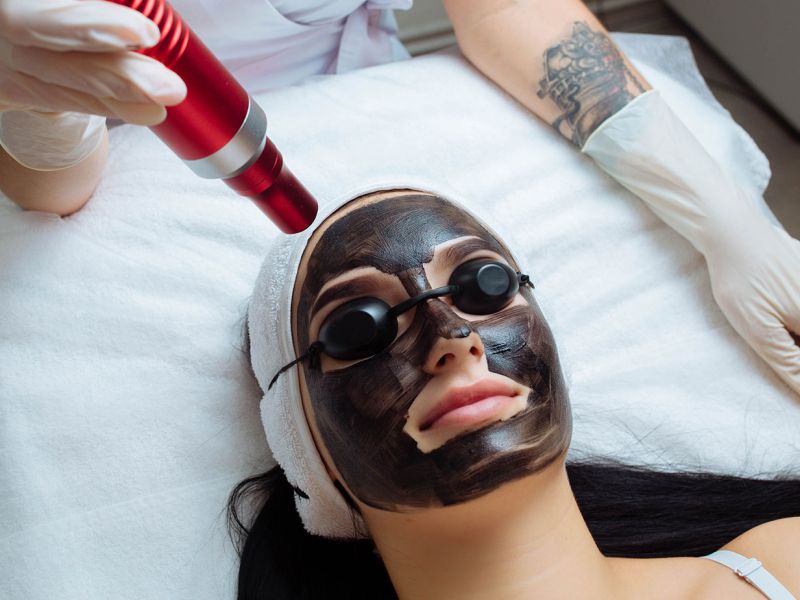Understanding Different Skin Types And Their Needs

Understanding your skin type is critical when it comes to skincare. Every person has a distinct skin type, which determines their skincare regimen, product selection, and overall skin health. You may adjust your skincare program to obtain the best results by recognizing your skin type and knowing its individual demands. In this post, we’ll look at the five most prevalent skin types, their features, and the care they require.
Normal Skin:
Normal skin is seen as the ideal skin type, with a balanced moisture content and a bright complexion. Individuals with normal skin often have tiny pores, an even skin texture, and few flaws. While this skin type requires less upkeep, it still benefits from a regular skincare program that emphasizes protection and nutrition. Cleaning, moisturizing, and applying sunscreen are essential actions for preserving normal skin health and vitality.
For normal skin, one can try these steps to take care of it.
- Cleanse your face twice a day with a mild cleanser to remove impurities.
- Use a moisturizer to keep your skin hydrated.
- Protect your skin from the sun by applying sunscreen with SPF 30 or higher.
- Exfoliate once or twice a week to remove dead skin cells.
- One can also opt for a proper hydrafacial procedure for maintaining healthy normal skin.
Dry Skin:
Dry skin is frequently distinguished by a lack of moisture and a lackluster look. Tightness, flakiness, and occasionally itching are common symptoms of dry skin. Because this skin type generates less sebum, it has less natural protection from external causes. Hydration and moisture retention should be prioritized for people with dry skin. Gentle cleansers, thick moisturizers, and products containing hyaluronic acid and ceramides are helpful in nourishing and restoring the skin’s moisture barrier.
For dry skin, one can try these steps to take care of it.
- Use a gentle, creamy cleanser that does not strip away natural oils.
- Apply a rich moisturizer daily to prevent dryness and lock in moisture.
- Use a humidifier in your living space to add moisture to the air.
- Avoid hot showers or baths, as they can further dry out your skin.
- Exfoliate once a week with a gentle scrub to remove flaky skin.
- Hydrafacial procedure can also be adopted on dry skin.
Oily Skin:
Oily skin is distinguished by excessive sebum production, which results in a glossy complexion, enlarged pores, and an inclination for acne and blemishes. This skin type is frequently inherited and can be altered by hormonal changes. To eliminate excess oil, debris, and pollutants from oily skin, proper washing is essential. To avoid blocking pores, use lightweight, oil-free moisturizers and non-comedogenic products. In addition, substances such as salicylic acid and tea tree oil can help regulate sebum production and reduce breakouts.
For oily skin, one can try these steps to take care of it.
- Cleanse your face twice a day with a foaming or gel cleanser to remove excess oil and dirt.
- Use an oil-free, lightweight moisturizer to prevent clogged pores.
- Use products labeled as “non-comedogenic” to minimize the risk of breakouts.
- Avoid touching your face throughout the day to prevent transferring additional oil and bacteria.
- Exfoliate two to three times a week to unclog pores and control oil production.
- Oily Skin can benefit a lot from a proper hydrafacial procedure.
Combination Skin:
Combination skin is a mix of oily and dry skin, with oilier regions such as the T-zone (forehead, nose, and chin) and drier parts such as the cheeks. Individuals with combination skin frequently struggle to strike a balance in their skincare regimen. Combination skin requires a mild cleanser and a well-balanced moisturizer. Maintaining equilibrium can be achieved by applying lightweight moisturizers to oily areas and heavier moisturizers to dry regions.
For combination skin, one can try these steps to take care of it.
- Cleanse your face twice a day with a gentle cleanser.
- Use a lightweight moisturizer on the dry areas of your face and a gel-based moisturizer on the oily areas.
- Apply sunscreen daily to protect your skin from the sun’s harmful rays.
- Use blotting papers throughout the day to control excess oil in the T-zone.
- Exfoliate once or twice a week to remove dead skin cells.
- Include a hydrafacial procedure in your routine as it is very beneficial for any skin type.
Sensitive Skin:
Environmental factors, allergies, or harsh materials can cause reactions, irritation, and redness in sensitive skin. Individuals with sensitive skin should use products that are soft, fragrance-free, and hypoallergenic. To minimize bad reactions, it is best to patch-test new items before completing the application. Calming substances, including aloe vera, chamomile, and oat extract, can help relieve sensitivity.
For sensitive skin, one can try these steps to take care of it.
- Use gentle, fragrance-free cleansers and products formulated for sensitive skin.
- Avoid harsh ingredients, such as alcohol and fragrances.
- Always do a patch test before trying a new product to check for any adverse reactions.
- Moisturize regularly with hypoallergenic and fragrance-free products.
- Protect your skin from the sun with a broad-spectrum sunscreen.
Understanding your skin type and its unique needs is the foundation for a successful skincare routine. By identifying whether you have normal, dry, oily, combination, or sensitive skin, you can select suitable products and tailor your regimen to address specific concerns. Remember that skincare is not one-size-fits-all, and it may take time and experimentation to find the right combination of products that work best for your skin type. But there are some universal skincare habits that apply to everyone, regardless of skin type. These include applying sunscreen to protect your skin from the sun, eating a good diet, drinking lots of water, and getting enough sleep. Regular consultations with a dermatologist or skincare specialist can also help you better understand your skin’s needs and efficiently handle any unique difficulties. With the right knowledge and consistent care, you can achieve healthier, more radiant skin.
Other Recent BLogs
-
 Acne Treatment and Truth about Chemical Peel
Acne Treatment and Truth about Chemical Peel -
 Skin Care for All Seasons, Adjusting Your Routine to Weather’s Whims
Skin Care for All Seasons, Adjusting Your Routine to Weather’s Whims -
 The Role of Stress in Skin Health: Managing Your Complexion in High-Pressure Times
The Role of Stress in Skin Health: Managing Your Complexion in High-Pressure Times -
 Understanding the Differences Between Teen and Adult Acne: A Guide from Elara
Understanding the Differences Between Teen and Adult Acne: A Guide from Elara -
 Should I Stop Using Moisturizers and Sunscreen Because I Have Acne-Prone Skin? Skincare Routine for Acne-Prone Skin
Should I Stop Using Moisturizers and Sunscreen Because I Have Acne-Prone Skin? Skincare Routine for Acne-Prone Skin -
 Skincare Care Routine For Acne Prone Skin
Skincare Care Routine For Acne Prone Skin -
 Salicylic Acid Treatment For Acne
Salicylic Acid Treatment For Acne -
 Understanding Acne And It’s Treatment
Understanding Acne And It’s Treatment










